The Polish American Congress Michigan Division, as a leading Polonian organization in the State was a host to numerous initiatives, projects and celebrations related to the 100th anniversary of Poland’s regained independence.
One of the biggest accomplishments of our division of PAC was creating billboards that were placed at two busy crossroads of Metro Detroit. The billboards educated commuters about Poland’s 100th anniversary of regained independence. The idea was originated by the late Dr. Thaddeus Radzilowski (President of the “Piast Institute”). After his untimely passing, PAC-Michigan decided to make this reality. The billboard created by PAC-MI read: “100 years of Poland’s Regained Independence. 1918-2018. Thank You America! We honor Armistice Day November 11 PAC of Michigan”. The wording was placed on a white and red background, and featured the Polish and American flags. One of the billboards (a digital one) was placed on Hall Road, just east of Van Dyke; the other one on E.14 Mile Rd., near Dequindre Rd. Commuters were able to see the billboards throughout November and part of December.
Just as the billboards were created to educate the public about Poland’s history, another project served as a similar tool. Our division published a special pamphlet “Poland’s Road to Independence” which featured facts leading up to the historical date of November 11, 1918, and featured key historical figures who had the biggest impact on Poland’s regaining independence. The booklet was distributed at various events, often during non-Polonian social gatherings.
The Polish American Congress – Michigan Division has also produced colorful pins, bumper stickers and decals- memorabilia for our members and the general public, to display or wear proudly, as a patriotic gesture and another way of educating the public.
The centennial was also the theme of this year’s Polish Day Parade in Hamtramck on Labor Day, which PAC-MI sponsors annually, and was highlighted with a beautiful themed float for many to view.
The culmination of our year-long celebrations came on November 11, when our Division hosted an elegant banquet at the American Polish Cultural Center in Troy, MI. Representatives of almost all Polish-American organizations were present, as well as dignitaries from U.S. and Canada. Mr. Richard Walawender, recently appointed Honorary Consul of Poland in Detroit, gave the banquet’s keynote address. A State Senator, a Michigan Congressman, and the Michigan Governor’s Office, presented tributes and Proclamations. The event’s program also included presentations by the Polish Scouting Organization of Michigan, “Rodacy” Polish Folk Ensemble and Adam Mickiewicz Polish Language School (whose students depicted roles of famous Polish historical figures). Among other points of the program, the award-winning choir “Filarets” performed a variety of patriotic songs, particularly the Legionnaire ones of that era, inviting guests to join in the singing. Including all program participants and guests, we had well over 300 persons in attendance.
Interesting exhibits accompanied the banquet festivities. Dariusz Klepko (of Polish American Numismatic Society of Michigan) along with his daughter, Julia, prepared a display “The Greatest Poles and other Leaders who helped free Poland 100 years ago” which featured numismatic related items. “12 Heroes of Polish Independence” was a special display (created with the help of the Polish-Slavic Credit Union in NY) presenting the most instrumental figures in the fight for Poland’s independence. Zdzislaw Foryś shared many items from his private collection of Jozef Pilsudski memorabilia, while Jerzy Barycki, President of Polish Canadian Congress – Windsor-Chatham Chapter, shared a power point presentation “Polish Army Camp in Canada during World War I”.
Kudos go to the banquet committee, under the chairmanship of Ann Bankowski, for working tirelessly to make this event a great success!
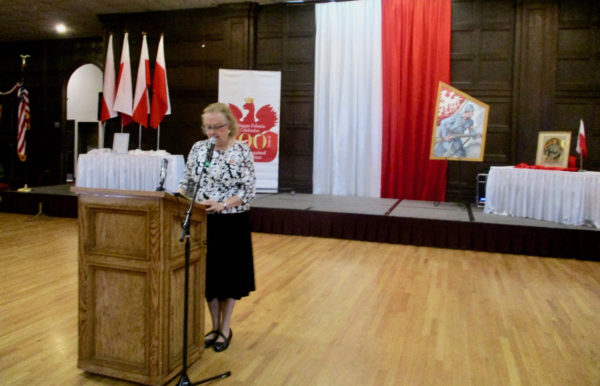
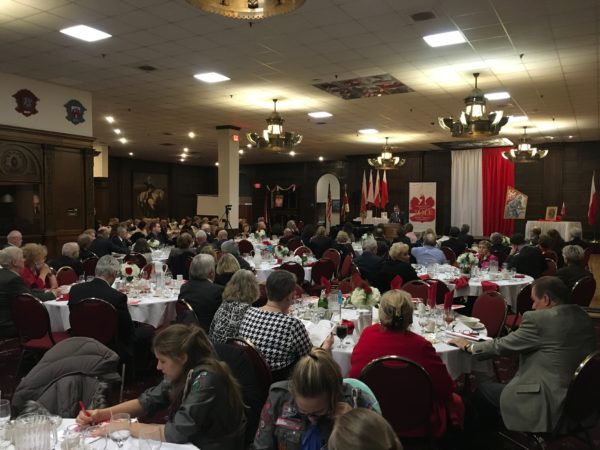
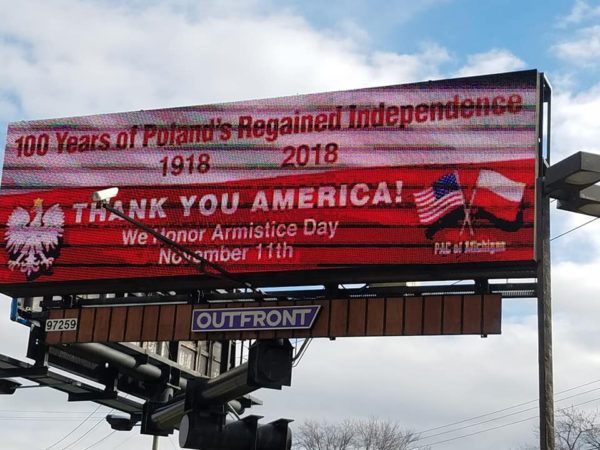
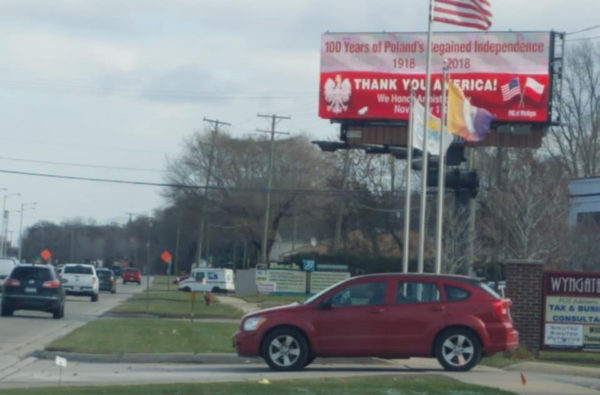

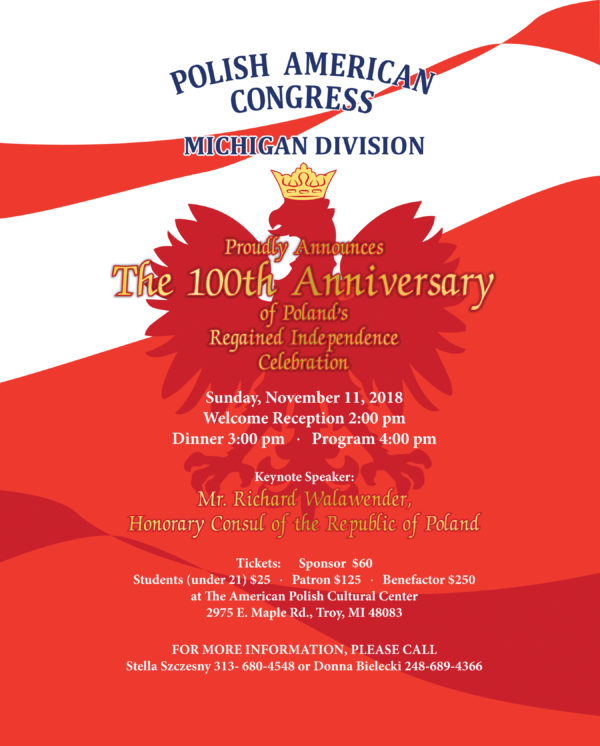
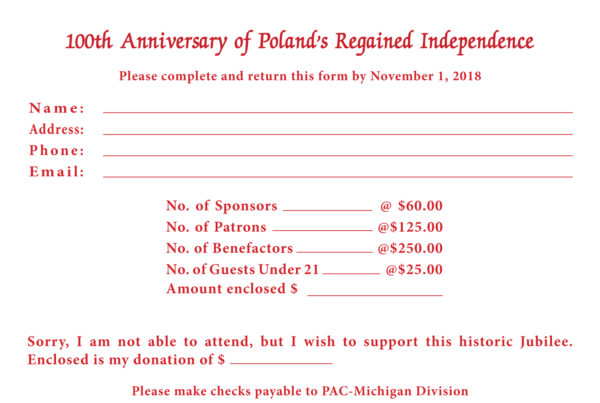

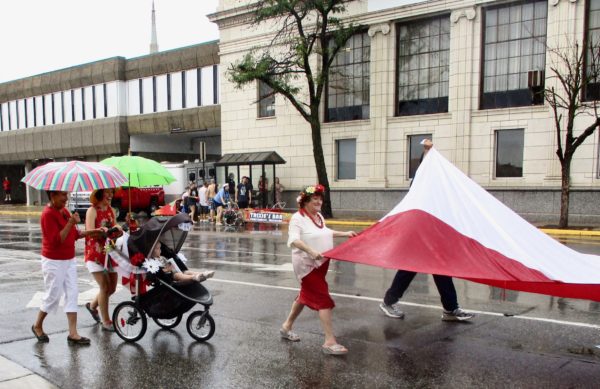
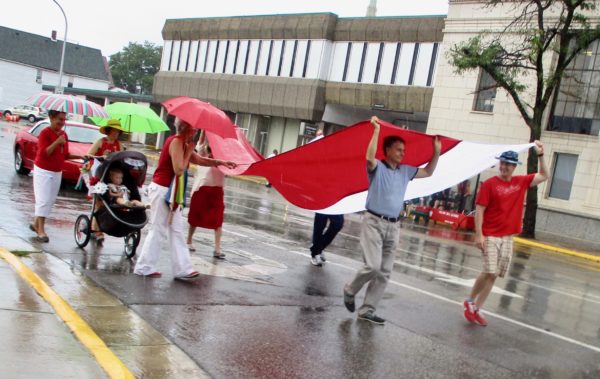
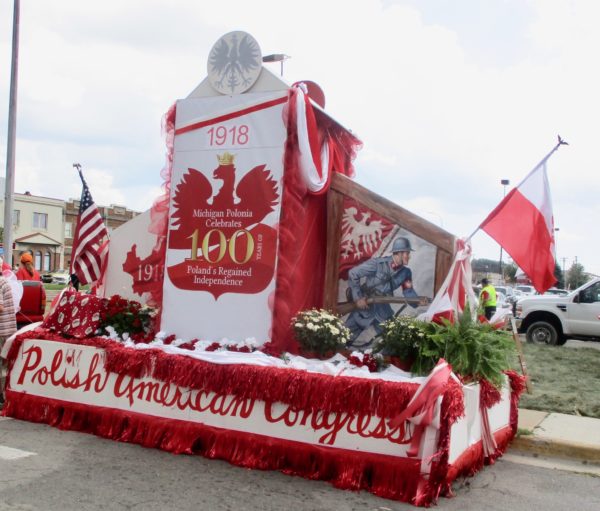


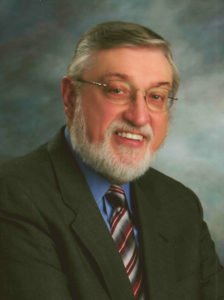
 The Polish American Congress (PAC) is a U.S. umbrella organization of Polish-Americans and Polish-American organizations. Its membership is composed of fraternal, educational, veterans, religious, cultural, social, business, and political organizations, as well as individuals.
The Polish American Congress (PAC) is a U.S. umbrella organization of Polish-Americans and Polish-American organizations. Its membership is composed of fraternal, educational, veterans, religious, cultural, social, business, and political organizations, as well as individuals.